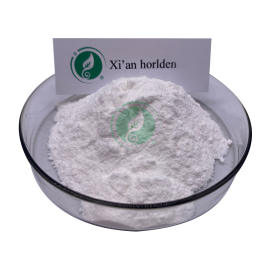"Safe" sugar levels are toxic to mice
-
Last Update: 2021-02-06
-
Source: Internet
-
Author: User
Search more information of high quality chemicals, good prices and reliable suppliers, visit
www.echemi.com
The World Health Organization
recommends adding no more than
10 percent of your daily calorie intake
scientists said Tuesday.
"
raising mice with sugar, which accounts for a quarter of the mice's daily calories, did not cause obesity or illness, but they died earlier or had fewer children than mice that ate a healthy diet, the team said.
" -
a red light on the level of
"
added
"
that are considered safe for people."
AddEd Sugaris a term that refers to refined sugars added to sweet drinks, baked goods, and sweets, rather than natural sugars from fruits, vegetables, and dairy products.In their experiment, scientists in the United States divided
156,
mice into two groups of
-
to feed a normal, healthy diet, while the other group replaced a quarter of the diet with added sugars.After
26
weeks, the two groups were put together to live, continue to compete and breed
32
weeks, during which time all mice were reared at the same diet, according to a study in the journal Nature Communications.the end of the experiment, female mice raised on a high-sugar diet had a mortality rate of
35%
, and
was twice the mortality rate of
17%
in other groups.mice on a sugary diet had
25 percent fewer offspring than
healthy male mice, while controlling
26 percent less
.
We've shown that the amount of sugar people typically consume
-
is considered safe by regulators but harms the health of mice
," said
James Ruff
, a biologist at the University of Utah and co-author of the study.he singled out
the american Medical Research Institute
's
IOM
recommendation on U.S. health policy to control the levels tested in the study by
25 percent
-
of added sugars that do not exceed total energy intake.'s high-sugar mouse diet is intended to replicate the situation of Americans who have
13%-25%
sugar in their daily diet
-
in which three cans of soda or the equivalent of
"
"
contribute more than
,400,
,
calories a day."
finally we had to ask ourselves the question
:
Is it making mice sick, do we want it in our bodies?"
”
Ruff
said.previous studies claim to show the health damage of the lowest consumption levels of sugar to mammals
-
previous studies have used much more than the true dose., despite differences in mortality and reproductive success, the differences were not measured in obesity and blood sugar levels in the two groups, the team added.suggests
"
even if they have a healthy weight and normal blood tests in the infirmary, sugar consumption can be harmful to people.
”
Ruff
told
. The
World Health Organization recommends that added sugars should not exceed
10% of
.
also
American Heart Association
recommends that women's daily intake of added sugars be controlled to
100,
,
calories, about
6,
scoops of sugar, and men to
150,
,
calories or
9,
scoops. 's consumption of sugar in the American diet increased
50 percent to
compared to the
70s, with a sharp increase in diabetes, obesity and heart disease, the study authors said. current research shows that Americans consume an average of about
22,
scoops of added sugar a day,
355
,
calories. "
I've reduced my intake of refined sugars and encouraged my family to do the same
" said Wayne Potts, senior author of
the
study
team insists that the wild mice used in the experiment were excellent
"
models that have been closely adapted to our diet since the ad emerging of agriculture
10,000
years ago. , however, critics say that in the UK, the proportion of sugar in any case exceeds most people's intake. UK food study shows that sugar intake accounts for an average of
11 per cent of total calories
, and that children from low-income families account for
17 per cent of
-
far less than the amount given to these mice. "
Catherine Collins, chief nutritionist at
St George's Hospital
, St George's Hospital in
, London
said. "
interesting because the amount of sugar in the experiment doesn't represent the average of British children and adults,"
said
said. Institute of
(
IOM
) declined to comment.
This article is an English version of an article which is originally in the Chinese language on echemi.com and is provided for information purposes only.
This website makes no representation or warranty of any kind, either expressed or implied, as to the accuracy, completeness ownership or reliability of
the article or any translations thereof. If you have any concerns or complaints relating to the article, please send an email, providing a detailed
description of the concern or complaint, to
service@echemi.com. A staff member will contact you within 5 working days. Once verified, infringing content
will be removed immediately.







